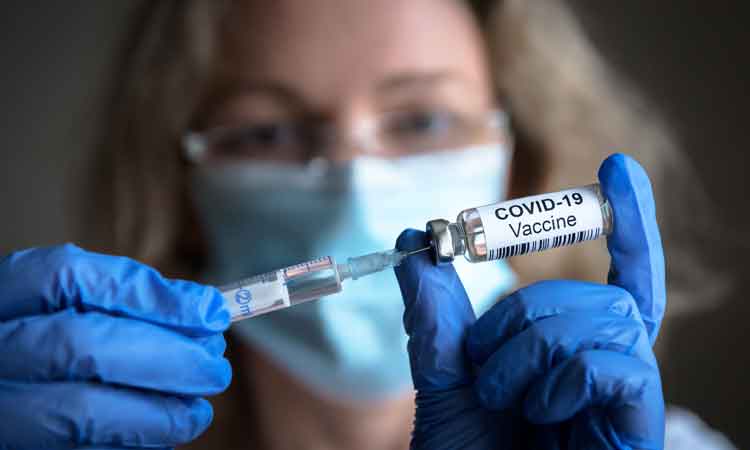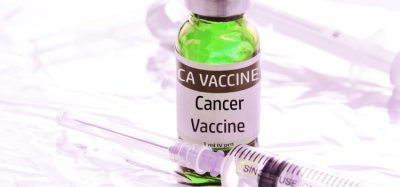New data on bivalent COVID-19 booster platform from Moderna
Posted: 27 April 2022 | European Pharmaceutical Review | No comments yet
The results indicate that mRNA-1273.211 at the 50 µg dose level induced higher antibody responses than the 50 µg mRNA-1273 booster, even when additional variants of concern were not included in the booster vaccine.


Moderna have announced new clinical data on its bivalent COVID-19 booster platform including data on the company’s first bivalent booster candidate, mRNA-1273.211.
A 50 µg booster dose of mRNA-1273.211 demonstrated superiority against Beta, Delta and Omicron variants of concern one month after administration. Superiority continued six months after administration for Beta and Omicron variants of concern as well. A 50 µg booster dose of mRNA-1273.211 was generally well tolerated with a reactogenicity profile comparable to a booster dose of mRNA-1273 at the 50 µg dose level.
“We believe that these results validate our bivalent strategy, which we announced and began pursuing in February 2021,” commented Stéphane Bancel, Chief Executive Officer of Moderna.
“The results indicate that mRNA-1273.211 at the 50 µg dose level induced higher antibody responses than the 50 µg mRNA-1273 booster, even when additional variants of concern were not included in the booster vaccine.
“Our latest bivalent booster candidate, mRNA-1273.214, which combines the currently authorised Moderna COVID-19 booster with our Omicron-specific booster candidate, remains our lead candidate for the autumn 2022 Northern Hemisphere booster. We believe that a bivalent booster vaccine, if authorised, would create a new tool as we continue to respond to emerging variants.”
Moderna is developing updated booster candidates to address the continued evolution of the SARS-CoV-2 virus, including monovalent and bivalent candidates targeting multiple variants of concern. The company’s primary focus has been on the bivalent booster approach to maintain high neutralising antibody titers while improving breadth of immunity to variants. Moderna has multiple bivalent booster candidates that have been evaluated to date, which include mRNA-1273.211 (9 spike protein mutations, based on the Beta variant), and mRNA-1273.214 (32 spike protein mutations, based on the Omicron variant). mRNA-1273.211 includes four mutations and mRNA-1273.214 includes 32 mutations present in the Omicron variant of concern.
A 50 µg booster dose of mRNA-1273.211 met Moderna’s objectives for its modified, bivalent booster candidates, including superiority immunogenicity criteria against variants of concern when compared to its currently approved mRNA-1273 booster dose (50 µg). A booster dose of mRNA-1273.211 demonstrated superiority against the ancestral SARS-CoV-2 and the Beta, Delta and Omicron variants one month after the booster dose and superiority against the ancestral SARS-CoV-2, Beta and Omicron six months compared to the booster dose of mRNA-1273. There was a 2.20-fold (95 per cent CI: 1.74, 2.79) and 2.15-fold (95 per cent CI: 1.66, 2.78) increase in the neutralising antibody titers against Omicron with the mRNA-1273.211 booster dose compared to the mRNA-1273 booster dose at one month and six months, respectively.
The mRNA-1273.211 booster candidate was generally well tolerated in 300 study participants who received the 50 µg dose and 595 participants who received the 100 µg dose of mRNA-1273.211 (895 participants in total).The 50 µg booster dose of mRNA-1273.211 had a similar incidence of solicited adverse reactions and unsolicited adverse events with the authorised mRNA-1273 booster (50 µg).
The results indicate that the bivalent booster vaccine candidate mRNA-1273.211 at the 50 µg dose level induced higher antibody responses than the 50 µg mRNA-1273 booster, even when the variants were not included in the booster vaccine which, if authorised, would create a new tool as Moderna responds to emerging variants.
Moderna’s bivalent prototype and Omicron booster vaccine candidate (mRNA-1273.214) is currently being evaluated in a Phase II/III study.
Related topics
Biologics, Clinical Development, Clinical Trials, Drug Safety, Research & Development (R&D), Vaccines









